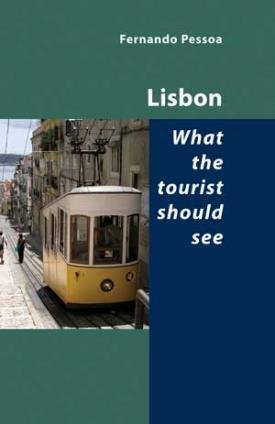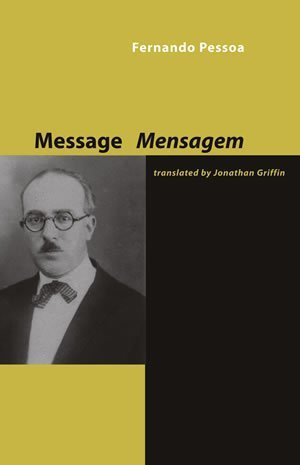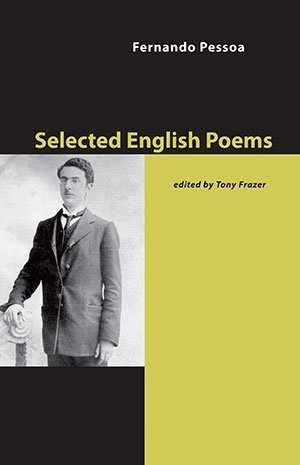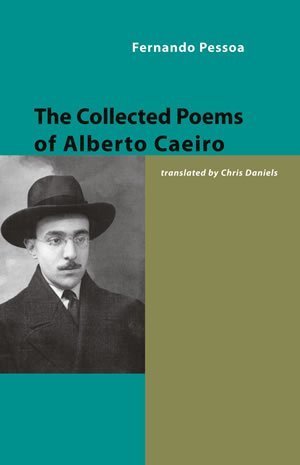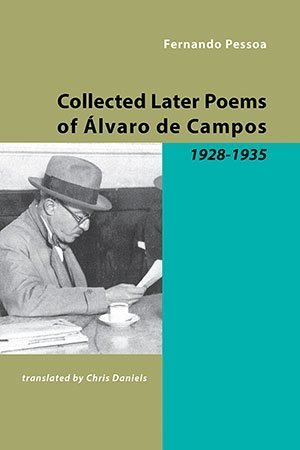Shearsman Store
Pessoa, Fernando
Fernando Pessoa is one of the great poets of the 20th Century, and is still something of a mystery to readers outside Portugal and Brazil, where his work has been elevated to classic status. Most puzzling for his readers, perhaps, is the fact that Pessoa wrote under a series of of other names—heteronyms, as he called them—and confusingly also under the 'orthonym' Fernando Pessoa, who is not the same person as the man born with that name. The major poetic heteronyms are Caeiro, Campos and Ricardo Reis, but Pessoa had a whole range of others: journalists, prose-writers, essayists, as well as two English poets in the form of Charles Robert Anon and Alexander Search, heteronyms used by Pessoa before the break-through year of 1914, when Reis, Caeiro and Campos all came into existence. Little of his work was published in book form during his lifetime: two slim volumes of English verse and the mature collection Mensagem (Message), but he left a trunk full of manuscripts and fragments—some 25,000 all told—and these have been mined by scholars ever since.
Biography
Fernando António Nogueira Pêssoa was born in Lisbon, Portugal, on 13 June, 1888. Just five years later his father Joaquim de Seabra Pessoa — a civil servant, who wrote music reviews in his spare time — died of tuberculosis. His mother, Maria Madalena Nogueira Pessoa, remarried a year and a half later to Commander João Miguel Rosa, the Portuguese consul in Durban, South Africa. Pessoa attended an English school in Durban, where he lived with his family until the age of seventeen, returning only once to Portugal, when he was thirteen. He was to return to Lisbon for good in 1905. He began studying at the University of Lisbon in 1906 but dropped out after only eight months, after a student strike had interrupted his studies. In the years that followed he stayed with relatives or in rented rooms, making his living by translating, writing in literary journals, and drafting business letters in English and French. He began publishing criticism in 1912, creative prose in 1913, and poetry in 1914. 1914 was also the year when the alter egos he called heteronyms — Alberto Caeiro, Ricardo Reis, and Álvaro de Campos—came into existence. In 1915 he changed the spelling of his surname, dropping the accent.
The majority of Pessoa's poems, whether heteronymic or orthonymic (i.e. written under his own name), appeared in literary magazines. He published his first book of English poems, Antinoüs in 1918, followed by Sonnets (1918) and English Poems (1921), but released only a single book of Portuguese poems, Mensagem (Message), in 1933. He died on 30 November, 1935, in Lisbon—apparently from cirrhosis of the liver. Pessoa avoided the literary world and most social contact and his work was only to gain a wide readership after his death.
Pessoa's assumption of different personae has parallels with other writers, but no other writer was to have as many heteronyms. Pessoa went so far as to develop detailed biographies and personalities for these other aspects of himself, and it is tempting to assume that this quiet, bookish man lived out his life in the imagination, the alter egos giving him a chance to be what he was not, or what he wished he could be. Alberto Caeiro was an unsophisticated, unemployed man from the provinces. Ricardo Reis was a doctor and classicist who wrote Horatian odes. Álvaro de Campos, a naval engineer, was a bisexual dandy who studied in Glasgow, travelled to the Far East, and lived in London. Pessoa wrote (in English), "Caeiro has one discipline: things must be felt as they are. Ricardo Reis has another kind of discipline: things must be felt, not only as they are, but also so as to fall in with a certain ideal of classic measure and rule. In Álvaro de Campos things must simply be felt." By creating separate personae like this, Pessoa was able to free himself from the bounds of tradition and even from those traits of his own personality which may have prevented him from achieving what he wished to achieve.
In later years, Pessoa also created the assistant book-keeper Bernardo Soares, a so-called "semi-heteronym" who authored the enormous journal-style volume The Book of Disquiet — now widely regarded as his masterpiece; António Mora, a philosopher and sociologist; the Baron of Teive, an essayist and author of The Education of the Stoic — a book about why he is unable to write; Thomas Crosse, whose critical writings in English promoted Portuguese literature and especially the work of Alberto Caeiro; I. I. Crosse, Thomas's brother and collaborator; Coelho Pacheco, a poet — although this attribution remains uncertain; Raphael Baldaya, an astrologer; Maria José, a nineteen-year-old hunchback consumptive who wrote a desperate, unmailed love letter to a handsome metalworker who passed under her window on his way to work each day; and so on.
At least seventy-two names besides Fernando Pessoa were said to be the authors of the thousands of texts that were actually written and the many more that were only planned. Although Pessoa did actually publish some works under pseudonyms, he distinguished this from his "heteronymic" project: "A pseudonymic work is, except for the name with which it is signed, the work of an author writing as himself; a heteronymic work is by an author writing outside his own personality: it is the work of a complete individuality made up by him, just as the utterances of some character in a drama would be."
For most of his adult life Pessoa lived in furnished rooms in Lisbon. He seems to have had a number of plans to collect and publish his work — notes survive indicating the contents of various volumes by Reis, Caeiro and others — but he never managed to achieve this, with the sole exception of Mensagem , ascribed to his own name. He ran his own little publishing house in the 1920s, which was to fail after the publication of six volumes — two of them his consisting of his own early poems in English—and he also founded the pioneering avant-garde journal Orpheu , where he published a large number of his poems, but which was to collapse before publication of the third issue, owing to a lack of funds and the impounding of the third issue by the authorities.


